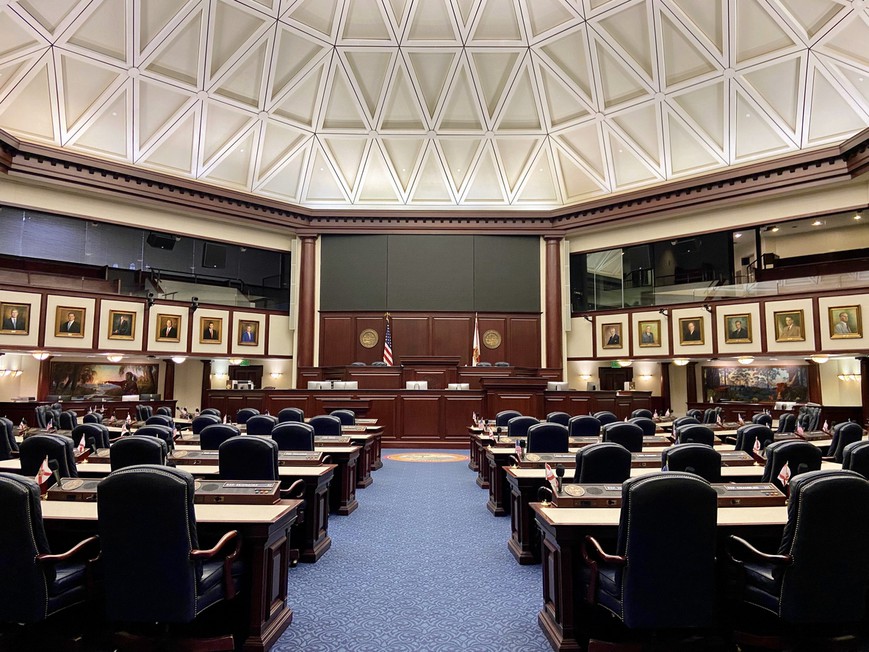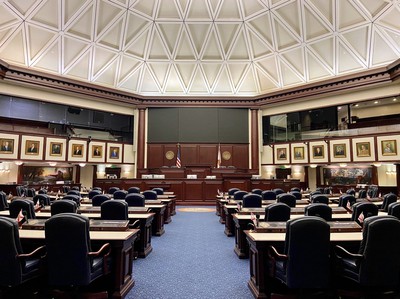

A non-profit organization that’s been instrumental in keeping commercial casinos out of Florida for the last 45 years has been given additional time to weigh in on the new battle over Florida sports betting in state court.
The Florida Supreme Court issued an order Friday granting a ten-day extension for No Casinos Incorporated to file an amicus brief in the case, which was opened on September 26 by two parimutuels opposed to sports betting in the Sunshine State.
Specifically, West Flagler Associates and the Bonita-Fort Myers Corporation argue that an amended gaming compact between the Seminole Tribe and the State of Florida — which would allow the tribe’s sportsbook, Hard Rock Bet, to launch — amounts to an illegal expansion of gaming in the state in part because a constitutional amendment passed in 2018 requires voter approval for any gaming expansion through a referendum.
No Casinos, which led the campaign to get Amendment 3 passed, agrees with the plaintiffs. However, the non-profit still wants to make its opinions known because it will offer a different perspective on the dispute.
“The proposed amicus curiae brief will endeavor not to be redundant of the petition, nor will it expand the core issue to be decided by this court,” the organization said in a court filing last Thursday.
“What [the brief] will do is provide the perspective of a coalition of opponents of expanded gambling within the State of Florida, which petitioners [West Flagler and Bonita Springs] cannot do in the same manner because they are themselves gambling entities, admitted 'competitors of the Tribe’ who fear economic harm because expanded sports betting will 'negatively impact both Florida poker and parimutuel revenues.’”
West Flagler owns and operates the Magic City Casino & Flagler Dog Track in Miami, while Bonita-Fort Myers is the owner and operator of the Bonita Springs Poker Room in the town of the same name. The parimutuels have also challenged Florida sports betting in federal court, but their options there have mostly run out.
The crux of No Casinos’ argument is that the gaming compact should be deemed illegal because it requires only that the servers that would be handling wagers on Hard Rock Bet be located on tribal land.
“Sports betting that would take 'Indian gaming’ off the reservation and into everyone’s hand-held device cannot be squared with the will of the people who voted for Amendment 3,” the organization said.
The court gave No Casinos until October 16 to file their amicus brief.
No Casinos is No Stranger to 'No Gaming’
No Casinos is no newbie on the subject of Florida gaming.
The non-profit was founded in 1978 by then-Governor Reubin Askew. The Democratic governor led opposition to Amendment 9 that year, which called for legalizing Las Vegas-style casinos in the Sunshine State.
Similar amendments were introduced in 1986 (Amendment 2) and 1994 (Amendment 8). Both measures were defeated largely due to ongoing efforts by No Casinos, which includes businesses, law enforcement, and religious communities among its members.
Amendment 3, which enshrines the rights of Florida voters to have the final say in gaming expansion, passed with more than 71% of the vote in 2018. A supermajority vote of 60% was required for passage.
According to the Florida Elections Division, the most recent amendment to pass was also the most popular:
Successful Anti-Gaming Amendments in Florida by Year
| Year | Number | Approval Rate (60% req) |
|---|---|---|
| 1978 | Amendment 9 | 71.45% |
| 1986 | Amendment 2 | 68.35% |
| 1994 | Amendment 8 | 61.29% |
| 2018 | Amendment 3 | 71.47% |
Ironically, West Flagler was one of the biggest opponents to the passage of Amendment 3 in 2018. According to the Florida Department of State Division of Elections, the company gave nearly $2 million to political campaigns that year, including $1.5 million to a political action committee (PAC) called “Vote NO on 3.”
Attorneys for the DeSantis administration filed a response earlier on Friday opposing the extension to No Casinos but made clear that the state does not oppose No Casinos filing a brief. They also said they would not oppose giving the non-profit more time to respond if the DeSantis administration was also given “a corresponding extension of time” to file a response.
As of Monday, the court has not granted the state a similar extension, meaning the state has until November 1 to file its response to the initial petition by West Flagler and Bonita-Fort Myers.
The case is West Flagler Associates Limited et al. v. Ron DeSantis et al. (No. SC2023-1333).

